Erica Verrillo's Blog, page 99
December 10, 2013
How Much Money Do Self-Published Authors Actually Make?
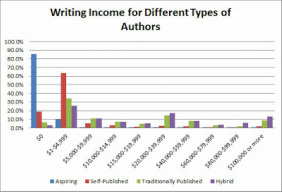 Nothing makes me happier than a bar graph. (Although pie charts also stir my soul.) Dana Beth Weinberg, who has a Ph.D. from Harvard University and is Professor of Sociology at Queens College, has made my day with - not just a bar graph - but an analysis!
Nothing makes me happier than a bar graph. (Although pie charts also stir my soul.) Dana Beth Weinberg, who has a Ph.D. from Harvard University and is Professor of Sociology at Queens College, has made my day with - not just a bar graph - but an analysis!You can either read her article and weep, or, like a sensible person, you can decide to cover all your bets. Keep your day job, self-publish, AND hound agents until one of them takes pity on you and sells your manuscript to Random/Penguin.
____________________________
The Self-Publishing Debate: A Social Scientist Separates Fact from Fiction (Part 3 of 3)
By Dana Beth Weinberg
Not surprisingly, most aspiring authors in the sample reported no annual income from their writing. About 19% of self-published authors in the sample also reported no annual income from their writing, compared to 6% of traditionally published authors and only 3% of hybrid authors. While most of the survey respondents clustered at the lower end of the income distribution, some authors did report earning $200,000 or more from their writing, the highest income choice on the survey: less than one percent (0.6%) of self-published authors, 4.5% of traditionally published authors, and 6.7% of hybrid authors who reported on their income. (In the chart, I have collapsed the top categories to $100,000 or more for better visibility. These aggregated category represents 1.8% of self-published authors, 8.8% of traditionally published authors, and 13.2% of hybrid authors.)
Self-published authors in the sample earned a median income in the range of $1 to $4,999, while traditionally published authors had a median writing income of $5,000 to $9,999, and hybrid authors earned a median income of $15,000 to $19,999. Comparing authors with the same number of manuscripts (analysis not shown), there is a strong similarity in income between hybrid and traditional authors, but hybrid authors outperformed their self-published counterparts on earnings.
Read the full article HERE. I insist.
Published on December 10, 2013 08:35
December 6, 2013
Fear, Guilt, Shame, Self-Loathing, and Doubt - Anybody Up for Writing a Novel?
 Before I launch into a diatribe about romantic illusions, disheveled writers (that would be Franzen), and the general role of mythology regarding the life of the Escriteur, let me just say that if Franzen feels self-doubt, it is entirely warranted. (Have you read Freedom? Tell the truth, now - did you actually
like
it?)
Before I launch into a diatribe about romantic illusions, disheveled writers (that would be Franzen), and the general role of mythology regarding the life of the Escriteur, let me just say that if Franzen feels self-doubt, it is entirely warranted. (Have you read Freedom? Tell the truth, now - did you actually
like
it?) Does this mean your beloved novel is a piece of crap, and that you should quit right now before you follow in Franzen's footsteps?
No, keep writing. And keep revising. And make sure that you've given your finished manuscript to the most critical readers on earth, and that they have drawn blood.
Writing is not about self-doubt, or guilt, or shame. It's about pain.
Embrace it.
OK, now that I've gotten that off my chest, this is what I think about the whole insecure, suffering artist shtick: It gets old very quickly, especially when you have to support a family, diaper babies, and make sure they don't drink and drive when you have finally finished weaning them.
If you want to be a writer, in all likelihood you will be poor for a very long time. But, by god, if you've got something to say, you should just go ahead and say it - without all the guilt and shame and self-doubt and badly needed counseling of writers who have been hugged by Oprah.
Do your work as best you can, and don't waste time gazing in the mirror.
_______________________________________
Literary self-loathing: How Jonathan Franzen, Elizabeth Gilbert and more keep it at bay
By Michele Filgate, Salon, Dec 1, 2013
Self-loathing is in the writer’s blood. When you’re an artist of any kind, there’s no certainty that what you’re working on won’t be a complete failure. But when writers reach a certain level of fame, when they make Oprah’s Book Club or the cover of Time magazine, surely they don’t struggle with the same massive insecurities we lesser known writers face?
The answer, of course, is that it’s human nature to struggle with oneself. That icky feeling of discontent we often experience is what sometimes inspires the best art.
“I experience shame and self-reproach more or less continually,” Jonathan Franzen (author of “Freedom”) told me. “The only way to deal with it is to keep trying to immerse myself in the fictional dream and hope that good sentences come out of that. Once there are good sentences on the page, I can feel a loyalty to them and start following their logic, and take refuge from myself.”
I love the idea of the writer taking refuge from who he is by putting words on the page. Writing, in fact, provides a much needed escape or confrontation with our worst emotions. It’s just so hard to get to that blissful place where the words are all that matters.
It’s so easy to get caught up in the vicious trap of self-defeat. My bedroom is the most organized when I’m on deadline. Is there anything more uncomfortable than staring at a blank page and knowing that you have to fill it with not only words, but words that matter? It’s far easier to walk away from the laptop, to alphabetize the piles of books on my floor, to call a friend and complain about my lack of productivity, to check Twitter and post an inspirational quote about literature or writing. To declare to your followers that you are writing, even when you’ve only written a few sentences and deleted them. The irony, of course, is that what’s uncomfortable is not writing. And the majority of writers spend many hours of their waking lives not writing — whether they’re doing their day jobs or tending to parental duties or just avoiding it. So most of a writer’s life is ridden with guilt.
If you aren't already wracked by guilt, and/or nausea, you can read the rest of this article HERE.
Published on December 06, 2013 09:17
December 3, 2013
Three Publishers That Accept Manuscripts Directly from Authors
 Small publishers are more apt to accept manuscripts directly from writers than large publishing houses. Generally, this is because they have very few books on their lists, and are eager for more. And in some cases, the publisher may have a narrow focus that warrants a more open submissions policy.
Small publishers are more apt to accept manuscripts directly from writers than large publishing houses. Generally, this is because they have very few books on their lists, and are eager for more. And in some cases, the publisher may have a narrow focus that warrants a more open submissions policy.If you are thinking of submitting to a small publisher, always check to see what they have published, and by whom. See if they have a catalog, and check online to see if there have been any complaints. (Preditors and Editors is a good source of information.)
________________________________________
BlazeVOX [books] BlazeVOX [books] is an independent small press publisher located in Buffalo, New York. It began in 1999 as a college project. To date, BlazeVOX has published 280 books and over 1000 writers in their online journal and other publishing outlets. Their authors include Bill Berkson, Anne Waldman, Clayton Eschleman, Lee Ann Brown, Tom Clark, Ray Federman, Barbara Henning, Michael Boughn, Gloria Frym, Ron Silliman and Steve McCaffery.
What they are looking for: From the website: "BlazeVOX [books]presents innovative fictions and wide ranging fields of contemporary poetry. Our books push at the frontiers of what is possible with our innovative poetry, fiction and select non-fiction and literary criticism. Our fundamental mission is to disseminate poetry, through print and digital media, both within academic spheres and to society at large."
How to submit: BlazeVOX has a year-round open submission period. Potential authors should submit via e-mail: editor@blazevox.org or use the online submission form. All submissions will be reviewed and the author will receive feedback.
___________________________
Filbert Publishing. Filbert is a very small, Print on Demand (POD) publisher located in Kandiyohi, Minnesota. Most of their titles consist of how-tos for freelance writers (many of which were written by the editor). They have only four novels and three nonfiction titles on their list. Essentially, this publisher is just one step up from doing it yourself. But, if you'd rather have a publisher's backing than self-publish, this is one avenue you can take. They release all books initially as ebooks. Don't expect an advance.
What they are looking for: From the website: "We really like to publish books that creative people can use to help them make a living following their dream. This includes books on marketing, books that encourage living a full life, freelancing, we’ll consider a fairly wide range of subjects under this umbrella. We also will also give consideration to books on healthy living, and plant based cooking. Make sure your cookbook has a strong hook. We’ve got a few awesome books in this category on the horizon and are anxious to extend that line."
How to submit: Potential authors should send an e-mail with a query, synopsis, and manuscript information.
_______________________________
Rio Nuevo Publishers. Rio Nuevo is a non-fiction only publishing house located in Tucson, Arizona. They focus exclusively on the American West. Their list of publications includes 69 back titles and 13 new titles. Be sure to look at their catalog when visiting their site. (This is how a small publisher's catalog should look!)
What they are looking for: From the website: "At Rio Nuevo Publishers we present the best of the West in words and pictures. Our award-winning books focus on arts and crafts, cooking, history, gardening, memoir, Native America, nature, spirituality, and travel."
Founded in 1999, Rio Nuevo Publishers is an independent regional press and family business owned by Ross Humphreys and Susan Lowell, located on the west bank of the Santa Cruz River in the historic heart of Tucson, Arizona. Our new building stands on the site of a former brickyard close to the home Susan’s family built in Arizona Territory a century ago. Instead of bricks we now make books as bright and beautiful as the West itself.
How to submit: Queries may be sent via e-mail to info@rionuevo.com or by post to: Acquisitions, Rio Nuevo Publishers, PO Box 5250, Tucson, AZ 85703. Do not send email attachments. Your snail mail query should include a SASE.
Published on December 03, 2013 08:09
November 28, 2013
What are people reading? Not what they were reading 20 years ago...
 This fascinating little article appeared a few days ago in USA Today. Among the more notable trends over the past two decades is an increase in fiction bestsellers. Why?
This fascinating little article appeared a few days ago in USA Today. Among the more notable trends over the past two decades is an increase in fiction bestsellers. Why?"People today are looking for escape...Fiction provides that. In the '90s and early 2000s, we were in a different economic time. People were living the dream, not just dreaming it. "
Other significant trends:
Erotica is now mainstream (apparently, people are dreaming of sex, not just living it)An increase in translations (due, in large part, to a girl with a tattoo)A decrease in bestselling self-help books (people would rather dream about sex)An increase in children's and teen books (not just for kids anymore)______________________________________________________
20 YEARS OF USA TODAY'S BEST-SELLING BOOKS LIST
By Bob Minzesheimer and Anthony DeBarros , USA TODAY, October 30, 2013
What 20 years of best sellers say about what we read...
How has your reading changed in the past 20 years? From readers shopping in brick-and-mortar bookstores, to the dominance of game-changing online sellers, to a digital era of e-reading and instant delivery, the book industry has gone through monumental change. And USA TODAY has been there all along. Look through 20 years of best-selling books.
When USA TODAY began its Best-Selling Books list 20 years ago, J.K. Rowling was a struggling unknown writer teaching English in Portugal. Suzanne Collins was helping to write a children's TV show for Nickelodeon called Clarissa Explains It All.
And the word "Amazon" brought to mind a river in South America or a very tall woman.
A lot has changed in two decades.
Driven by Amazon.com, about half of all books are now bought online, a click away. More than 20% are downloaded. Some 40% of adults have e-readers, tablets or other devices to read e-books.
And Rowling and Collins? They have a combined total of 225 million copies in print of the books (10 in all) of their two series for children and teens, Harry Potter and The Hunger Games.
Two decades worth of data show what's changed — and what hasn't — since USA TODAY began tracking best sellers in October 1993.
The highlights from three distinct eras:
• Self-help and other advice titles were big during the first five years (1993-1998) when most books were bought in physical bookstores.
• Rowling triggered Dickens-like excitement about reading and demolished the conventional wisdom about children's books in the second era (1999-2008), when online sales grew.
• Since 2009, fiction (as a percentage of best sellers) has risen to all-time highs and erotica went mainstream as e-books became the fastest growing part of the market.
Read the rest of this article HERE.
Published on November 28, 2013 07:48
November 26, 2013
Three New Literary Agents Looking for Clients
Here are three new literary agents looking for clients. As new agents, they are building their lists, which means they are eager not just for new writers, but for their success. Read the websites of their respective literary agencies to see if the agency offers services you may be interested in further along in your career. 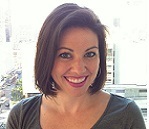 Rachael Dillon Fried
Rachael Dillon Fried
About Rachael Dillon Fried: Rachael is a new agent at Sanford Greenburger Associates, located in New York. After a stint with International Creative Management’s [now ICM Partners] live appearances division in Los Angeles, associate agent Rachael Dillon Fried embraced her love of books and relocated to New York City to pursue a career in literary representation. She landed at Sanford Greenburger, where she assisted agent Heide Lange before becoming an associate agent. Rachael is a Rhode Island native and graduate of Brown University. She lives in Manhattan with her husband, a television writer. Find Rachael on Twitter.
What she is looking for: Rachael is enthusiastic about increasing her client list with both fiction and nonfiction authors. She has a keen interest in unique literary voices: women’s fiction, narrative nonfiction, memoir and humor and pop culture. She hopes to build long-term relationships with clients who are passionate about developing their craft and career.
Recent Sales: Rules Of Becoming A Legend By Time Lane (Viking/Penguin), My Boyfriend Barfed In My Handbag...And Other Things You Can't Ask Martha By Jolie Kerr (Plume/Penguin), We Were Here By Mary Kubica (Mira/Harlequin)
How to contact her: rfried [at] sjga.com. Please submit a query letter and your first three chapters to RFried@sjga.com. If she is interested in pursuing you as a client, She will contact you within six to eight weeks.
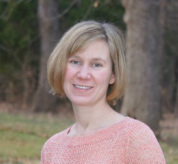 Shannon Hassan
Shannon Hassan
About Shannon Hassan: Shannon Hassan is a new agent at Marsal Lyon Agency, located in Solana Beach, CA. Shannon has worked in publishing and law for more than a decade. She represents authors of literary and commercial fiction, young adult fiction, and select nonfiction. With respect to fiction: she is drawn to fresh voices, compelling characters, and crisp prose. For nonfiction: she is interested in memoirists with exceptional stories to tell, as well as authors with a strong platform in current affairs, history, education, or law. Based in Boulder, Colorado, she is also eager to hear from authors with a unique perspective on the New West.
Previously Shannon was an agent at the Warner Literary Group where she represented a range of literary and film projects, including the soon to be published Future Flash by Kita Murdock (Sky Pony Press). Prior to that she was the Acquisitions Editor at Fulcrum Publishing, where she worked with best-selling and award-winning authors such as Anita Thompson, Laurie David, Adam Schrager, Larry Schweiger, Marilou Awiakta, Matt Dembicki, Sally Kneidel, and Mitch Tobin.
Before entering the publishing world, Shannon was a corporate attorney at Arnold & Porter in New York, and she received her JD from Harvard and her BA from George Washington University. She has served on the board of the Publishers Association of the West and was a founding board member of the Boulder Writing Studio. Find her on Twitter.
What she is looking for: Shannon represents authors of literary and commercial fiction, young adult fiction, and select nonfiction. With respect to fiction: she is drawn to fresh voices, compelling characters, and crisp prose. For nonfiction: she is interested in memoirists with exceptional stories to tell, as well as authors with a strong platform in current affairs, history, education, or law.
How to contact her: Query Shannon [at] MarsalLyonLiteraryAgency.com and write “QUERY” in the subject line of the email. “In all submissions, please include a contact phone number as well as your email address. If we are interested in your work, we will call or email you. If not, we will respond via email. Our response time is generally 1-4 weeks for queries and 4-8 weeks for sample pages and manuscripts.”
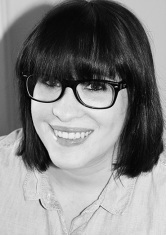 Maria Vicente
Maria Vicente
About Maria Vicente: Maria Vicente is an Associate Agent at P.S. Literary Agency, located in Ontario, Canada. She has a B.A. in English Literature from Carleton University and a B.Ed. from The University of Western Ontario. Her reading preferences vary across categories and she is interested in writers with unique and creative concepts. Maria has a literary blog and can be found on Twitter at @MsMariaVicente.
What she is looking for: Maria is looking for literary and commercial fiction, new adult, young adult, middle grade, high-concept picture books, and nonfiction proposals in the pop culture, pop psychology, design, and lifestyle categories. She has a particular interest in magical realism, fiction with visual components, and nonfiction inspired by online culture.
How to contact her: Note: Please read the submission requirements on P.S. Literary's website carefully before sending a query. P.S. Literary only accepts queries via e-mail: query [at] psliterary.com. Please limit your query to one page and include the following: an introduction (the title and category of your work and an estimated word count), a brief overview (similar to back-cover copy), and a writer’s bio (a little bit about yourself and your background). Do not send attachments or submit a full-length manuscript/proposal unless requested. In your email subject line, have it read “Query for Maria: [Book Title].
 Rachael Dillon Fried
Rachael Dillon FriedAbout Rachael Dillon Fried: Rachael is a new agent at Sanford Greenburger Associates, located in New York. After a stint with International Creative Management’s [now ICM Partners] live appearances division in Los Angeles, associate agent Rachael Dillon Fried embraced her love of books and relocated to New York City to pursue a career in literary representation. She landed at Sanford Greenburger, where she assisted agent Heide Lange before becoming an associate agent. Rachael is a Rhode Island native and graduate of Brown University. She lives in Manhattan with her husband, a television writer. Find Rachael on Twitter.
What she is looking for: Rachael is enthusiastic about increasing her client list with both fiction and nonfiction authors. She has a keen interest in unique literary voices: women’s fiction, narrative nonfiction, memoir and humor and pop culture. She hopes to build long-term relationships with clients who are passionate about developing their craft and career.
Recent Sales: Rules Of Becoming A Legend By Time Lane (Viking/Penguin), My Boyfriend Barfed In My Handbag...And Other Things You Can't Ask Martha By Jolie Kerr (Plume/Penguin), We Were Here By Mary Kubica (Mira/Harlequin)
How to contact her: rfried [at] sjga.com. Please submit a query letter and your first three chapters to RFried@sjga.com. If she is interested in pursuing you as a client, She will contact you within six to eight weeks.
 Shannon Hassan
Shannon HassanAbout Shannon Hassan: Shannon Hassan is a new agent at Marsal Lyon Agency, located in Solana Beach, CA. Shannon has worked in publishing and law for more than a decade. She represents authors of literary and commercial fiction, young adult fiction, and select nonfiction. With respect to fiction: she is drawn to fresh voices, compelling characters, and crisp prose. For nonfiction: she is interested in memoirists with exceptional stories to tell, as well as authors with a strong platform in current affairs, history, education, or law. Based in Boulder, Colorado, she is also eager to hear from authors with a unique perspective on the New West.
Previously Shannon was an agent at the Warner Literary Group where she represented a range of literary and film projects, including the soon to be published Future Flash by Kita Murdock (Sky Pony Press). Prior to that she was the Acquisitions Editor at Fulcrum Publishing, where she worked with best-selling and award-winning authors such as Anita Thompson, Laurie David, Adam Schrager, Larry Schweiger, Marilou Awiakta, Matt Dembicki, Sally Kneidel, and Mitch Tobin.
Before entering the publishing world, Shannon was a corporate attorney at Arnold & Porter in New York, and she received her JD from Harvard and her BA from George Washington University. She has served on the board of the Publishers Association of the West and was a founding board member of the Boulder Writing Studio. Find her on Twitter.
What she is looking for: Shannon represents authors of literary and commercial fiction, young adult fiction, and select nonfiction. With respect to fiction: she is drawn to fresh voices, compelling characters, and crisp prose. For nonfiction: she is interested in memoirists with exceptional stories to tell, as well as authors with a strong platform in current affairs, history, education, or law.
How to contact her: Query Shannon [at] MarsalLyonLiteraryAgency.com and write “QUERY” in the subject line of the email. “In all submissions, please include a contact phone number as well as your email address. If we are interested in your work, we will call or email you. If not, we will respond via email. Our response time is generally 1-4 weeks for queries and 4-8 weeks for sample pages and manuscripts.”
 Maria Vicente
Maria VicenteAbout Maria Vicente: Maria Vicente is an Associate Agent at P.S. Literary Agency, located in Ontario, Canada. She has a B.A. in English Literature from Carleton University and a B.Ed. from The University of Western Ontario. Her reading preferences vary across categories and she is interested in writers with unique and creative concepts. Maria has a literary blog and can be found on Twitter at @MsMariaVicente.
What she is looking for: Maria is looking for literary and commercial fiction, new adult, young adult, middle grade, high-concept picture books, and nonfiction proposals in the pop culture, pop psychology, design, and lifestyle categories. She has a particular interest in magical realism, fiction with visual components, and nonfiction inspired by online culture.
How to contact her: Note: Please read the submission requirements on P.S. Literary's website carefully before sending a query. P.S. Literary only accepts queries via e-mail: query [at] psliterary.com. Please limit your query to one page and include the following: an introduction (the title and category of your work and an estimated word count), a brief overview (similar to back-cover copy), and a writer’s bio (a little bit about yourself and your background). Do not send attachments or submit a full-length manuscript/proposal unless requested. In your email subject line, have it read “Query for Maria: [Book Title].
Published on November 26, 2013 09:43
November 22, 2013
Calling All College Writers: Avon Impulse Launches College-Based Challenge to Discover Future Bestsellers
 HarperCollins has announced a free contest that budding romance authors can enter. The romance market is huge, with over 30,000,000 dedicated readers. And publishers are just now realizing that money can be made from digital imprints, so they are opening their doors to writers. No agent required. And - have I said this? - it's FREE.
HarperCollins has announced a free contest that budding romance authors can enter. The romance market is huge, with over 30,000,000 dedicated readers. And publishers are just now realizing that money can be made from digital imprints, so they are opening their doors to writers. No agent required. And - have I said this? - it's FREE.So, come, all you romantic New Adults, blow the dust off your keyboards and type!
_________________________________________________________
From the website:
Avon’s Digital-First Imprint Encourages Graduate and Undergraduate Writing Students to Submit Romance Manuscripts for Chance to Win One-on-One Editorial Consultation. All Submissions will be Considered for Publication by Avon Impulse!
September marks the end of summer and a return to academia—and for many university students, it’s also a return the equally grueling and rewarding routine of creative writing classes. Avon Books and Avon Impulse, imprints of HarperCollins Publishers, recognizes the raw talent and passion for the craft that many students bring to their work, and it is for this reason that they have chosen to work with HarperCollins’ Academic Marketing division to launch an initiative seeking emerging young stars of Romance.
Graduate and undergraduate students are invited to submit up to three chapters (or 50 pages), a detailed synopsis (no more than five pages) of the romance novel. Entrants should also include a brief paragraph on what their follow-up book would be to the Avon Impulse Editors.
What are Avon’s editors looking for? Amanda Bergeron,the lead editor for the Avon Impulse digital-first publishing imprint, says, “First and foremost, we always want a fresh voice and an ability to create real-to-life characters. Beyond that, we are looking for writers who have an understanding of what’s working in the current market. And if you can make us laugh, cry, or go absolutely weak-kneed, that certainly doesn’t hurt. Know your strengths when you write—and trust in a great editor to make your manuscript even stronger”
Avon is actively acquiring the following types of novels:
New Adult romanceRomantic suspenseSuper sexy contemporariesTrilogies—and beyondSerialized erotic romanceWhat types of submissions will get students noticed? Bergeron notes, “Fabulously sexy heroes who let nothing get in the way of getting what they want—the heroine of course—and giving her everything she needs,” are top-of-bell curve for Avon editorial. Emphasis is also on heroines who are unafraid to take chances in life … and in love. “World-building” is key—writers are asked to choose the setting, just make sure it’s utterly romantic! Readers should be able to immerse themselves in the wonderful world that an author creates. "Series Wanted!" Bergeron asserts that readers always cry out for more when authors give them characters to believe in … so, in outlines, aspiring authors are asked to give Avon’s editors an idea of more stories to come in the same vein. And finally—for anyone who has discovered the super-dramatic, addictive joy of New Adult, editors are looking for dark spectacles that explore the many twists and turns of true love.
Further guidelines can be found at www.avonimpulse.com—but the sky’s the limit, since there are no specific call outs for this opportunity; as long as it’s romance, it qualifies! This call for submissions is aimed directly at students.
Deadlines:
All submissions should be digitally sent by 5 pm on April 1, 2014, via email to avonromancecollege@gmail.com. All submissions must be submitted from a college email address. All submissions will be reviewed and considered for publication through Avon Impulse, the publisher’s digital-first arm—winners will be announced on May 15, 2014.
Please Click Here for Official Rules
ABOUT HARPERCOLLINS PUBLISHERS
HarperCollins Publishers, one of the largest English-language publishers in the world, is a subsidiary of NewsCorp (NASDAQ: NWS, NWSA; ASX: NNC, NNCLV). Headquartered in New York, HarperCollins has publishing groups around the world in the US, UK, Canada, Australia, New Zealand, and India. HarperCollins is a broad-based publisher with strengths in literary and commercial fiction, business books, children's books, cookbooks, narrative nonfiction, mystery, romance, reference, pop culture, design, health, wellness, and religious and spiritual books. With nearly 200 years of history, HarperCollins has published some of the world's foremost authors, including winners of the Nobel Prize, the Pulitzer Prize, the National Book Award, the Newbery Medal, and the Caldecott Medal. HarperCollins is consistently at the forefront of innovation, using digital technology to create unique reading experiences and expand the reach of its authors. You can visit HarperCollins Publishers online at: http://www.harpercollins.com.
Published on November 22, 2013 12:51
November 18, 2013
Why Does the Federal Government Care What You Are Reading?
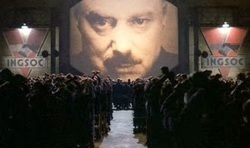 Big Brother is watching ... What were the most recent books you took out of a library? Were they, by any chance, How to Build a Bomb That Will Destroy a Large Building in Washington, DC? Or, perhaps, Death to America? Or did you simply want to refresh your memory of Howard Zinn's classic, A People's History of the United States?
Big Brother is watching ... What were the most recent books you took out of a library? Were they, by any chance, How to Build a Bomb That Will Destroy a Large Building in Washington, DC? Or, perhaps, Death to America? Or did you simply want to refresh your memory of Howard Zinn's classic, A People's History of the United States?The American Library Association, the American Booksellers Association, the Association of American Publishers, and PEN American Center have all endorsed a bill, the Freedom Act, that will restore Americans' right to read and say what they like - unmonitored.
Privacy is among our most cherished civil rights - and for good reason. If somebody, somewhere in the bowels of wherever the Patriot Act allows drones to monitor what we read, decides that Howard Zinn or Noam Chomsky is a terrorist, then you may suffer the consequences, simply by having taken home one of their books.
Of course, the argument in favor of monitoring citizens is that citizens must give up a certain amount of freedom in order to have security. The fears of Americans after 911 made this perspective seem reasonable.
What people tend to forget is that the federal government's (or any institution's) idea of security may have more to do with its own self-preservation than yours. The abandonment of freedom of the press in America in the wake of the Jacobin threat (The Sedition Act), stimulated, not a crack-down on sympathizers of the French Revolution, but on political opponents of the Federalist government.
Historically, it has always been the case that whenever civil liberties are revoked, the purpose is not to safeguard the rights of citizens, but to extend the reach of whoever happens to be in power.
This article appeared a few days ago in Publisher's Weekly. Give it a read. And send a quick thank you note to Senator Patrick Leahy and Representative James Sensenbrenner for standing up to Big Brother. George Orwell would appreciate it.
______________________________________________
Book Groups Back Bill to Restore Privacy Protections
Publisher's Weekly, Nov 14, 2013
Spurred by revelations of how the National Security Agency is collecting information on citizens, the Campaign for Reader Privacy has issued a statement calling for Congress to pass the USA Freedom Act. CRP, a joint initiative of the American Booksellers Association, the American Library Association, the Association of American Publishers, and PEN American Center, said passage of the bill will restore privacy protections that were eliminated by the Patriot Act.
The Freedom Act (S. 1599/H.R. 3361) was introduced on October 29 by Sen. Patrick Leahy (D-VT) and Rep. James Sensenbrenner (R-WI) in response to the news that the National Security Agency is using Section 215 of the Patriot Act to collect records of the telephone calls made by Americans without regard to whether they are suspected of involvement in terrorism. Section 215 eliminated the requirement that the government show evidence of “individualized suspicion” before it can conduct a search in a terrorism investigation.
Since 2004, CPR has warned that Section 215 could be used to obtain the records of innocent Americans, including records of the books they purchase from bookstores or borrow from libraries. Supporters of the Patriot Act, including Rep. Sensenbrenner, argued that it would be used only to investigate someone suspected of terrorism. The revelations of former NSA contractor Edward J. Snowden, however, convinced Sensenbrenner and others that additional safeguards are needed to protect privacy. The Freedom Act would limit government searches to the records of people who are suspected terrorists and their associates.
Read the rest of this important article HERE.
Published on November 18, 2013 10:50
November 14, 2013
Ray Bradbury's Words of Wisdom - Write Like Hell!
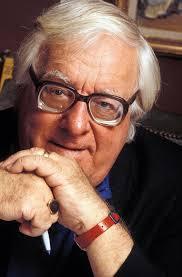 There is no doubt about it, Ray Bradbury could give a great lecture.
There is no doubt about it, Ray Bradbury could give a great lecture.In 2001, Bradbury spoke at Point Loma Nazrene University in San Diego, California, where he imparted his wisdom: Read the greats, broaden your mind, and write like hell.
We've heard it before - practice makes perfect - but nowhere is this message delivered with greater honesty, more clarity, and deeper conviction than when it comes out of Ray Bradbury's mouth. Because this is a man who waited until he was 30 before he wrote his first novel, Fahrenheit 451, and who spent the previous 18 years writing "millions of words" until he got it right.
In an age of instant gratification and overnight success stories (a very bad idea for writers, by the way - overnight success usually kills a writer's career), Bradbury's words of wisdom may fall on deaf ears.
But that does not make them any less true. Here is the writer's problem, as Bradbury saw it:
"The problem with novels is you can spend a whole year writing one and it might not turn out well."
He's right. In fact, chances are that if that novel is the only thing you have ever written, it will turn out to be a piece of crap. Unfortunately, writers are a stubborn lot - fixated on their "little darlings" and their plans for world domination.
Nonetheless, those who are wise will follow Bradbury's advice:
"If you can write one short story a week, it doesn’t matter what the quality is to start – at least you’re practicing. At the end of the year you have 52 short stories. And I defy you to write 52 bad ones. It can’t be done. After 30 or 40 weeks, all of a sudden a story will come that is wonderful – just wonderful. That’s what happened to me..."
While you're coming up with your wonderful gem, read the great short story writers: Richard Matheson, Nigel Kneal, John Collier (brilliant short stories), Edith Wharton, Edgar Allen Poe, Melville, Hawthorn. Read the great poems. Read the great essays, from various fields. "Stuff your heads!"
Watch this fabulous video - this man is one of the greats, and well worth listening to.
"The sooner you know how to write a metaphor, the better off you'll be."
Ray Bradbury, August 22, 1920 – June 5, 2012
Published on November 14, 2013 10:28
November 10, 2013
Marketing Terms for Those Who Would Rather Use a Hammer
 When I bought my 175-year-old farmhouse, my brother handed me a book.
When I bought my 175-year-old farmhouse, my brother handed me a book. "You'll need this," he said.
The book was Better Homes and Gardens Complete Guide To Home Repair & Improvement, and it was enormous. Not only was it big, it contained a lot of things I would never be able to do - like fix squeaky stairs, and take apart plumbing.
I expressed some reservations about my handyman abilities. My brother replied, in his infinite wisdom, that the book was not meant for me to actually use - that would require being able to name a tool other than a hammer - but for me to understand what plumbers and other repairmen were doing when they came to my house.
The book proved invaluable, as anyone with a 175-year-old house can attest to.
There is a point to this story.
As I was browsing the net, I came upon an article explaining marketing terms. I am not a marketer, and don't plan to become one, mostly because I haven't the faintest idea what these people are talking about. As it turns out, it's a good idea to know what marketing terms mean, if only because, like the plumber's wrench, it's nice to recognize a tool when someone else charges you for using one.
Even if you don't ever have to pay a marketer, you may want to know what marketing is about. Chances are you'll be doing some of this work yourself.
__________________________________________
17 Marketing Terms You Were Too Embarrassed to Google (But Should Definitely Know)
By Maggie Hibma
As inbound marketers, it’s our job to keep up with the latest trends in our industry, news on our competitors, and the latest marketing jargon.
But sometimes, every once in a while, a term or concept will eek by you. You might kind of know what it means, but not entirely.
And you’ll know exactly what that term is when a colleague says something to you and your first reaction is ... “Huh?”
Perhaps you’re more eloquent than me, but I’ve had plenty of “Huh?” moments at my time here at HubSpot. And if I’ve been hesitant to Google a few things here and there, I bet there are some fellow marketers out there that also have been.
So ... I put together a list of some -- okay, 17 to be precise -- terms and concepts that you can brush up on (or maybe learn about for the first time) and your Google search history will be none the wiser.
1) Long-Tail Keywords
Long-tail keywords are cool. Essentially, they’re search queries that contain three or more keywords. So, for example, a regular keyword for HubSpot would be “HubSpot.” But a long-tail keyword could be something like “inbound marketing software.”
What makes long-tail keywords great is Google’s new algorithm, Hummingbird, focuses on user intent, which is the concept behind long-tail keywords, making them an important part of your marketing strategy. They’re also what can turn your PPC efforts into successful campaigns. See? Like I said -- cool.
Read the rest of this enlightening article HERE.
Published on November 10, 2013 11:34
November 7, 2013
LitCrawls - The Newest Thing Since Pubcrawls
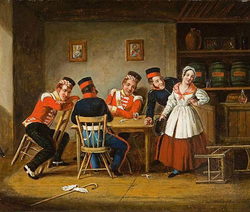 Last September, the New York Times published an article, A Heady Cocktail of Books and Booze, covering the latest trend among the literati - LitCrawls. As with so many entertaining concepts, the LitCrawl - an event combining food, fun, alcohol, and (I almost forgot) authors - began in San Francisco, home of Rice-A-Roni.
Last September, the New York Times published an article, A Heady Cocktail of Books and Booze, covering the latest trend among the literati - LitCrawls. As with so many entertaining concepts, the LitCrawl - an event combining food, fun, alcohol, and (I almost forgot) authors - began in San Francisco, home of Rice-A-Roni. Gone - or nearly gone - are the days when 25 people find themselves uncomfortably seated on metal folding chairs in a dank library basement for the privilege of listening to an embittered author read from his or her latest unsuccessful novel. Of course, there are still the $35 events at the 92nd Street Y, but these are getting some serious competition from literary events that are free - and fun! After all, which would you rather do - sit in a dank basement (or part with your money), or eat, drink and be merry with people who still read books?
Two questions immediately come to mind, 1) Where are these events held, and 2) How can we get into one?
The answer to the first question is London, San Francisco, New York, and, most recently LA.
The answer to the second question is, make connections. (Just read who sponsored the LA event, and you'll see what I mean.)
________________________________________
First LitCrawl Los Angeles a Big Success
By Wendy Werris, Publisher's Weekly, Oct 24, 2013
An estimated 2,000 devotees from the Los Angeles literary community were out in force on the evening of Wednesday, October 23, in North Hollywood, Calif., for the first annual LitCrawl 2013 Los Angeles: NoHo. The event is now a participant in the national Litquake Foundation series.
Held in the burgeoning NoHo arts district in the San Fernando Valley, the organizers of LitCrawl scheduled 23 events in 12 locations around the business hub of North Hollywood. Literary salons, workshops, and periodicals such as Tongue and Groove, Black Clock, GETLIT – Words Ignite, Los Angeles Review of Books, The (In)Visible Memoirs Project, and The Rumpus featured readings in venues as varied as pizza parlors, bars, theatres, and a hair salon. Round 1 of the Crawl ran from 6:00 – 7:00 pm; Round 2 from 7:30 – 8:30 pm. A sold-out after-party and fundraiser for LitCrawl L.A. began at 9:00 pm at The Hesby restaurant, where over 200 people mingled and listened to a live jazz band.
Read the rest of the article HERE.
Published on November 07, 2013 10:03



